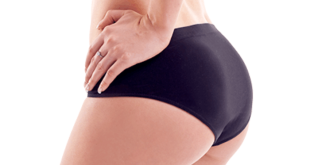Introduction
Anxiety, a common mental health condition, affects millions of people worldwide. While its impact on mental well-being is well-documented, its effects on physical health are equally significant but often overlooked. Understanding the intricate connection between anxiety and physical health is crucial for comprehensive healthcare. This article delves into how anxiety influences physical health, exploring the mechanisms, consequences, and strategies for managing its effects.
Understanding Anxiety
To grasp the full impact of anxiety on physical health, it’s essential to first understand what anxiety is and how it manifests.
What is Anxiety?
Anxiety is a feeling of worry, nervousness, or unease about something with an uncertain outcome. It can be a normal reaction to stress, but chronic anxiety, often seen in anxiety disorders, can significantly impact daily functioning.
Types of Anxiety Disorders
- Generalized Anxiety Disorder (GAD): Characterized by excessive, uncontrollable worry about various aspects of life.
- Panic Disorder: Involves sudden, intense episodes of fear (panic attacks) with physical symptoms like heart palpitations and shortness of breath.
- Social Anxiety Disorder: Fear of social situations and being judged or embarrassed in public.
- Specific Phobias: Intense fear of specific objects or situations, such as heights or spiders.
Symptoms of Anxiety
Anxiety can manifest in a range of physical, emotional, and behavioral symptoms:
- Physical: Increased heart rate, muscle tension, headaches, fatigue, and gastrointestinal issues.
- Emotional: Excessive worry, irritability, restlessness, and a sense of impending doom.
- Behavioral: Avoidance of anxiety-provoking situations, difficulty concentrating, and disrupted sleep patterns.
The Physiological Mechanisms of Anxiety
Anxiety triggers a complex interplay of physiological responses in the body. Understanding these mechanisms helps explain how anxiety impacts physical health.
The Stress Response
Anxiety activates the body’s stress response, also known as the “fight-or-flight” response, which involves the release of stress hormones like adrenaline and cortisol.
- Adrenaline: Prepares the body for immediate physical action by increasing heart rate, blood pressure, and energy supplies.
- Cortisol: Regulates various functions, including metabolism, immune response, and inflammation. Chronic stress leads to prolonged cortisol release, which can have detrimental effects on health.
The Autonomic Nervous System
The autonomic nervous system (ANS) regulates involuntary bodily functions, and it consists of two main branches:
- Sympathetic Nervous System (SNS): Activates the body’s stress response.
- Parasympathetic Nervous System (PNS): Promotes relaxation and recovery.
Chronic anxiety leads to prolonged activation of the SNS, disrupting the balance between the SNS and PNS and causing physical health issues.
Physical Health Consequences of Anxiety
The chronic activation of the stress response and ANS imbalance due to anxiety can lead to numerous physical health problems.
Cardiovascular Health
- Hypertension: Anxiety increases heart rate and blood pressure, contributing to chronic hypertension.
- Heart Disease: Chronic anxiety is linked to an increased risk of coronary artery disease, heart attacks, and other cardiovascular conditions.
- Arrhythmias: Anxiety can cause or exacerbate irregular heartbeats, which can be dangerous if not managed properly.
Immune System Dysfunction
- Suppressed Immunity: Chronic stress and elevated cortisol levels weaken the immune system, making individuals more susceptible to infections and illnesses.
- Inflammation: Anxiety-related stress can lead to chronic inflammation, contributing to conditions such as rheumatoid arthritis and other autoimmune disorders.
Gastrointestinal Issues
- Irritable Bowel Syndrome (IBS): Anxiety is closely linked to IBS, with symptoms such as abdominal pain, cramping, bloating, and altered bowel habits.
- Digestive Disorders: Chronic anxiety can exacerbate conditions like acid reflux, gastritis, and peptic ulcers.
Respiratory Problems
- Asthma: Anxiety can trigger or worsen asthma attacks due to the hyperactivity of the respiratory system.
- Chronic Respiratory Conditions: Chronic anxiety can lead to hyperventilation syndrome and other breathing disorders.
Musculoskeletal Complaints
- Muscle Tension: Persistent muscle tension and stiffness, especially in the neck, shoulders, and back, are common in individuals with chronic anxiety.
- Pain Syndromes: Anxiety can contribute to conditions such as fibromyalgia and chronic pain syndromes.
Sleep Disturbances
- Insomnia: Anxiety often leads to difficulty falling or staying asleep, resulting in chronic insomnia.
- Sleep Quality: Even when individuals with anxiety manage to sleep, the quality of their sleep is often poor, leading to daytime fatigue and cognitive impairments.
Managing the Physical Health Effects of Anxiety
Effective management of anxiety is crucial not only for mental well-being but also for preventing and alleviating its physical health consequences.
Medical Interventions
- Medications: Anti-anxiety medications, antidepressants, and beta-blockers can help manage anxiety symptoms and their physical effects.
- Therapies: Cognitive-behavioral therapy (CBT), exposure therapy, and other therapeutic approaches are effective in treating anxiety disorders.
Lifestyle Modifications
- Regular Exercise: Physical activity reduces anxiety and stress hormones, improving overall physical health.
- Healthy Diet: A balanced diet supports immune function and reduces inflammation, mitigating anxiety’s physical impact.
- Adequate Sleep: Prioritizing good sleep hygiene can alleviate anxiety-related sleep disturbances.
Stress Management Techniques
- Mindfulness and Meditation: These practices promote relaxation, reduce stress, and improve autonomic nervous system balance.
- Deep Breathing Exercises: Techniques such as diaphragmatic breathing can activate the parasympathetic nervous system and reduce anxiety symptoms.
Holistic Approaches
- Yoga: Combines physical postures, breathing exercises, and meditation to reduce anxiety and its physical effects.
- Acupuncture: Can help regulate the body’s stress response and alleviate anxiety-related physical symptoms.
Support Systems
- Social Support: Strong relationships and support networks provide emotional stability and reduce anxiety.
- Support Groups: Joining groups with individuals facing similar challenges can provide comfort and practical coping strategies.
Preventive Measures
Taking proactive steps to prevent anxiety from developing or worsening can protect physical health.
Early Intervention
- Recognize Symptoms: Early recognition of anxiety symptoms allows for timely intervention.
- Seek Help: Consulting healthcare professionals at the onset of anxiety can prevent chronic conditions.
Education and Awareness
- Mental Health Education: Understanding the connection between mental and physical health encourages proactive management.
- Awareness Campaigns: Promoting awareness about anxiety and its effects can reduce stigma and encourage individuals to seek help.
Conclusion
The connection between anxiety and physical health is profound and multifaceted. Anxiety triggers a cascade of physiological responses that can lead to significant health problems, from cardiovascular issues to immune dysfunction and gastrointestinal disorders. Effective management of anxiety requires a holistic approach that includes medical interventions, lifestyle modifications, stress management techniques, and robust support systems. By addressing anxiety comprehensively, individuals can protect their physical health and enhance their overall quality of life. Recognizing and addressing anxiety early can prevent its chronic impacts, highlighting the importance of integrated healthcare approaches that consider both mental and physical well-being.







